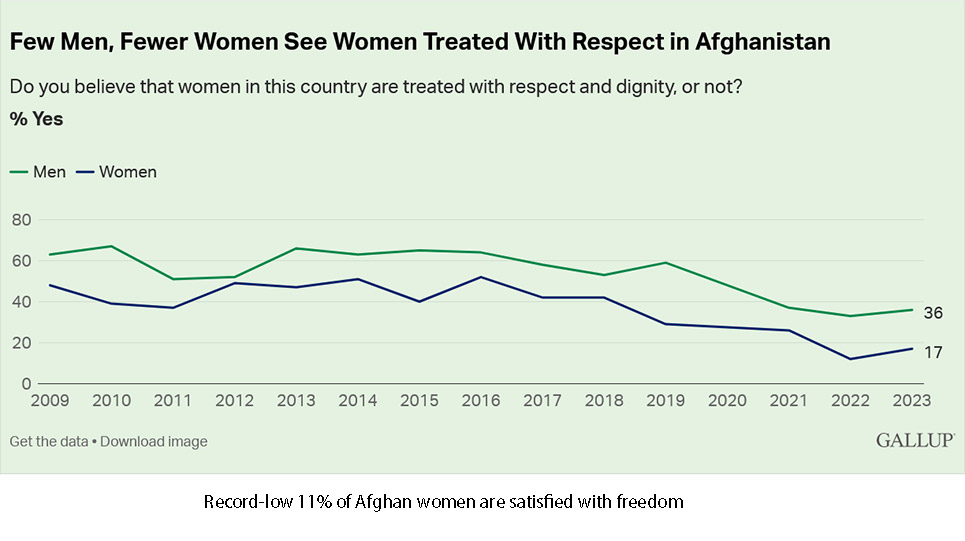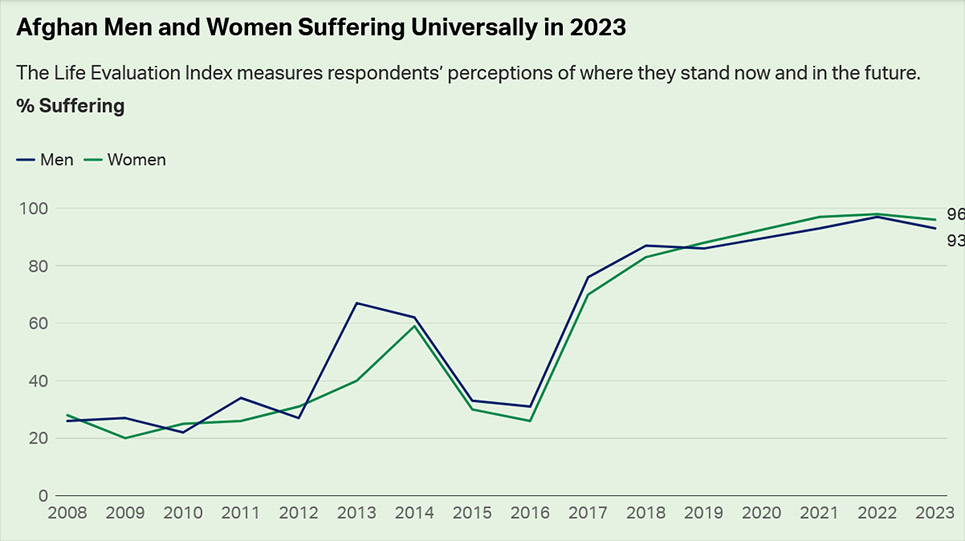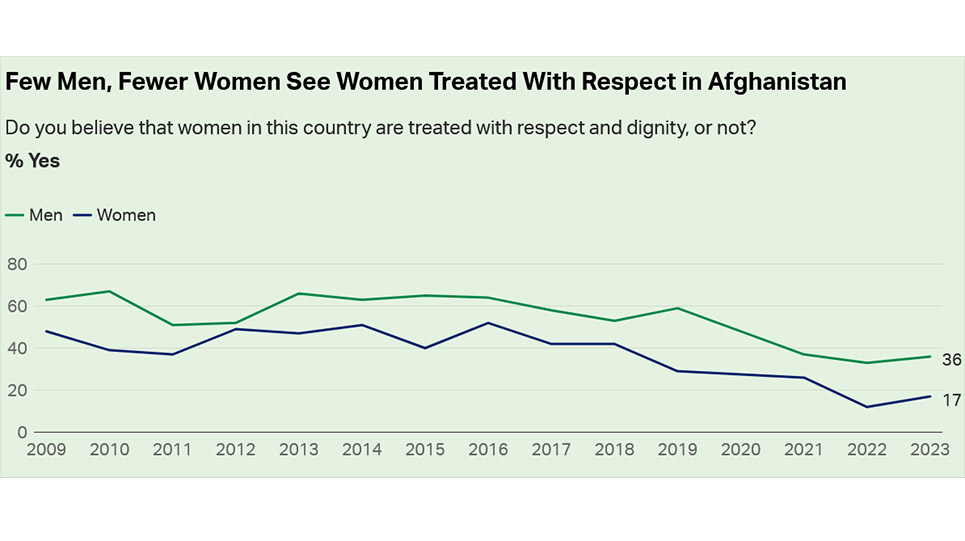
Khorshied Nusratty and Julie Ray
Prospects remain grim for women and girls inside Afghanistan in 2023, as well as the hundreds of thousands of undocumented refugee women and girls whom Pakistan is currently forcing to return to the Taliban-controlled Afghanistan.
As they have since the Taliban’s takeover in 2021, Gallup surveys continue to show that nearly all Afghan women are suffering and most do not feel women in their country are treated with respect. But this year, women’s satisfaction with the freedom they have to choose what they do with their lives has dropped to an unprecedented low.
Just 11% of Afghan women interviewed in July said they are satisfied with the freedom they have to choose what they do with their lives, which is a new record low, not just for Afghanistan but for any country or population that Gallup has ever polled.

The sharp drop in women’s satisfaction -- from the previous low of 29% in 2022 to 11% in 2023 -- likely reflects their realization that the severe restrictions placed on them after the Taliban took over are now the status quo. The Taliban have indicated that the ban on girls attending school beyond sixth grade will remain in place.
While Afghan men have not suffered the same restrictions that women have, both men and women notably are currently unhappier with their freedom to choose what they do with their lives than they've been at any point in the past. However, Afghan women continue to be less satisfied than Afghan men.
Suffering Remains Universal Among Women and Men
As has been the case since the Taliban’s takeover, nearly all Afghan women and men rate their lives so poorly that they can be considered “suffering.” Women hold a slight edge over men: 96% of women and 93% of men in 2023 rate their lives poorly enough to be considered suffering.

Gallup classifies individuals as "thriving," "struggling" or "suffering" according to how they rate their current and future lives on a ladder scale with steps numbered from zero to 10, based on the Cantril Self-Anchoring Striving Scale. Those who rate their current lives and anticipated lives in five years a 4 or lower are classified as suffering.
In late 2021, suffering rocketed north of 90% for all Afghans, where it has stayed ever since. These numbers remain the highest level of suffering Gallup has measured for any country since 2005.
Most Women and Men Feel Afghan Women Are Not Treated With Respect
While the percentage of Afghans who believe women in their country are treated with respect had been drifting downward before the Taliban retook control, it dropped precipitously afterward and has not budged much since. In 2023, 17% of Afghan women and 36% of men say women are treated with respect and dignity, but strong majorities continue to believe that they are not.

Notably, 2021 marked the first time in the history of Gallup surveys in Afghanistan that the majority of both men and women agreed that women in their country are not treated with respect and dignity. Before then, the majority of men felt women were treated this way.
Implications
Last week, Pakistan started the mass deportation of undocumented Afghan refugees who are in the country illegally, forcing them to return to Taliban-ruled Afghanistan, where they face economic uncertainty. Pakistan is home to roughly 4 million Afghans, many of whom were born and raised in Pakistan and have no real connection to Afghanistan. The forced repatriation of undocumented Afghan refugees sends them back into a country of many unknowns.
This includes hundreds of thousands of Afghan women and girls who will find themselves -- like other Afghan women -- without access to education, healthcare or the ability to work and freely participate in society, which may have caused some of them to flee to Pakistan in the first place.



